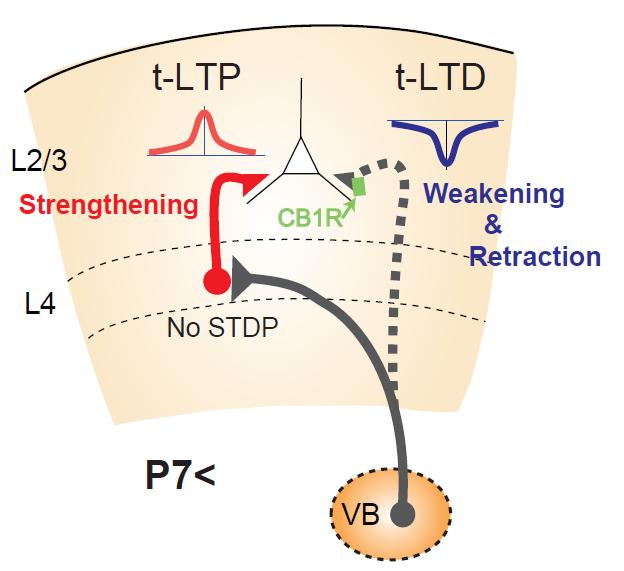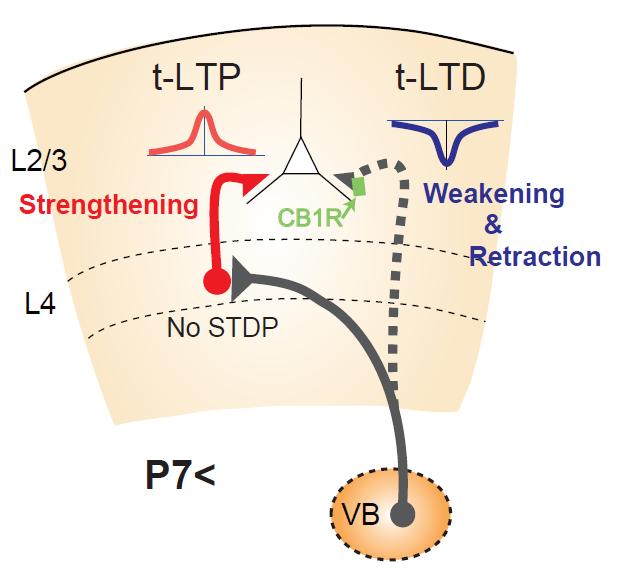
Credit: Osaka University
The formation and refinement of neural networks is known to be often an activity-dependent process, but mechanisms and nature of activity are not yet clearly understood. During neuronal circuit formation, afferent axons often make multiple, exuberant, or aberrant connections, which are later eliminated, sometimes in an activity-dependent manner. Such examples are widely seen throughout the central and peripheral nervous systems.
The finding made by a research group led by Fumitaka Kimura, associate professor at the Graduate School of Medicine, Osaka University indicates that such exuberant early thalamocortical connections are not useless, unnecessary connections but serve to help make L4-L2/3 connections. It will be intriguing to determine whether similar mechanisms might be operating in other systems. In addition, retraction of early thalamocortical connection was driven by cannabinoid type 1 receptor (CB1R). This suggests that external intake of cannabinoids (psychoactive ingredient of marijuana) will retract thalamocortical projection without neural activity. This may result in poor neural formation of L4-L2/3. Thus, intake of cannabinoids may result in a malformation of CB1R-free neurons.
This finding will lead to further understanding of neuronal circuit mechanism and contribute to raising awareness of prevention of cannabis and/or legal drug abuse.
###
Media Contact
Saori Obayashi
[email protected]
81-661-055-886
@osaka_univ_e
http://www.osaka-u.ac.jp/en
############
Story Source: Materials provided by Scienmag





